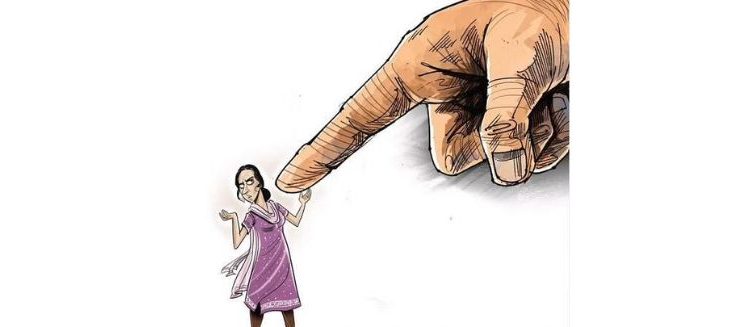Cruelty towards women can take many forms, including physical, emotional, sexual, and financial abuse. It can happen in relationships, at home, and in the workplace, and it is never acceptable. If you or someone you know is experiencing cruelty or abuse, it is important to seek help from a trusted friend, family member, or professional. Support and resources are available to help you stay safe and heal from any harm that has been done.
Cruelty On Women At Domestic
Domestic cruelty towards women can include physical, emotional, sexual, and financial abuse by a partner or family member. This type of abuse can take many forms and can be difficult to recognize or acknowledge. Examples of physical abuse include hitting, slapping, pushing, or restraining. Emotional abuse can include manipulation, humiliation, criticism, and verbal abuse. Sexual abuse can include rape, coercion, and unwanted touching. Financial abuse can include controlling access to money, preventing someone from working, or stealing money. It is important for anyone experiencing domestic cruelty to reach out for help from a trusted friend, family member, or professional. Support and resources are available to help them stay safe and heal from any harm that has been done. It is also important for the abuser to seek help for their behaviour in order to prevent future incidents.
Laws related to cruelty on women in India
In India, there are several laws in place to protect women from cruelty and abuse.
- The Indian Penal Code (IPC) has provisions for cruelty by a husband or his relatives under Section 498A. This section criminalizes acts of cruelty by a husband or his relatives against a married woman, and it carries a punishment of imprisonment for up to 3 years.
- The Protection of Women from Domestic Violence Act (PWDVA) of 2005 provides legal protection to women from domestic violence, including physical, emotional, sexual, and economic abuse. The act also provides for protection orders and the appointment of protection officers to assist victims.
- The Indian Evidence Act 1872 and the Code of Criminal Procedure 1973 were amended in 1983 to include provisions to make the statement of the victim admissible as evidence in the court of law.
- Prevention of Atrocities Act, 1989: It is an act that provides for the prevention of atrocities against Scheduled Castes and Scheduled Tribes.
- Sexual Harassment of Women at Workplace (Prevention, Prohibition and Redressal) Act, 2013: It is a law that provides for protection of women from sexual harassment at the workplace.
- Dowry Prohibition Act, 1961: It is an act that prohibits the giving or taking of dowry.
It is important to note that laws alone cannot solve the problem of cruelty towards women, but they can be an important tool for holding perpetrators accountable and protecting victims. It is crucial for the society to be aware of these laws and understand the rights of women to seek help and justice.
Indian Court Concerns Regarding Cruelty Done on Women
In India, courts have expressed concerns regarding the misuse of laws related to cruelty towards women. The Indian Penal Code (IPC) Section 498A, which criminalizes acts of cruelty by a husband or his relatives against a married woman, has been a point of concern in this regard. Some courts have observed that the provision is being misused by some women to file false or frivolous complaints against their husbands and their families.
In response to this, the judiciary has laid down guidelines to prevent the misuse of the provision. For example, the Supreme Court has stated that an arrest under Section 498A should be made only after a proper investigation and not as a matter of routine, and that the arrest of an accused should be avoided if there is an alternative remedy available.
Additionally, the judiciary has emphasized the need for the provision to be used only in cases of genuine cruelty, and not as a means of harassment or blackmail. They have also called for the need of counselling and reconciliation before any legal action is taken in such cases.
It’s important to note that these laws have been put in place to protect women from genuine cruelty and abuse and not to misuse for personal vendetta. The society, law enforcement, and judicial system must work together to ensure that these laws are used appropriately and that victims are protected while also ensuring that the rights of the accused are protected.

